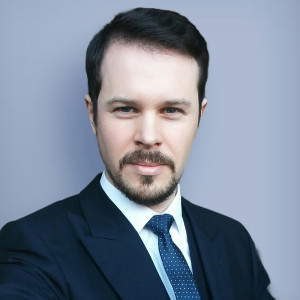Chapters
You may well have heard about growth mindset, the hugely influential new psychological theory from Carol Dweck. As an idea, Its influence can be seen pretty much everywhere – in the school system, in business, even in politics.
If you haven’t heard about this already, then maybe it’s high time that you pay attention.
This theory developed by Dweck, a professor of social psychology and developmental psychology at Stanford University, proposes that there are two categories of mindset into which the vast majority of the population can be grouped.
These two categories relate to the ways in which people understand the origin of their ability. Those people with a ‘fixed mindset’ believe – whether consciously or not – that their ability is innate; that they were born with it. Meanwhile, those with a ‘growth mindset’ believe – again, maybe not consciously – that their abilities come from their having acquired them, and their being able to acquire more.
This, quite simply, is the long and short of it. Yet, the appeal of such an idea comes from the fact that the growth mindset, as proposed by Dweck, is more likely to make you successful, less stressed, and more able to adapt to failure and new challenges.
Think about it: success comes simply with a change of mindset.
It’s this that explains why everyone is talking about it. And this is why you need to know about this idea.
Find out more in our introduction to growth mindset!


What Do We Mean by Mindset?
The most basic question in this particular psychological theory is what do we actually mean by mindset? Because, whilst we might say that we don’t have a fear of failure, that we are able to face setbacks with perseverance, and that we have a good attitude to personal growth, this might not mean that we actually have a growth mindset.
So, how do we actually know?
Well, Dweck defines mindset as the self-conceptions that “people use to structure the self and guide their behaviour”. They are the motivations and self-regulatory notions that make us behave in the way we do.
However, as we said, whilst we might say that we always persevere, that we don’t believe in our innate ability, and that we have a passion for learning for growth, this isn’t enough. Because you can see your mindset in the way that you act, in the way you behave, and particularly, as Dweck notes, in the way that you react to failure.
The point is then is that those of us with a fixed mindset need to learn to behave – and not just think – in a different way in order to develop a growth mindset. It is not enough to talk the talk – because mindset saturates everything about you.
The Difference Between a Growth Mindset and a Fixed Mindset?
Let’s consider this distinction – between a fixed mindset and a growth mindset – in greater detail. This distinction is the crux of Dweck’s work as a psychologist, and it comes from a simple distinction between two ways of looking at your own intelligence.
The fixed mindset looks at its own intelligence and says, ‘intelligence is static, it is set in stone; I have the intelligence I have and that is it’.
Meanwhile, the growth mindset rather looks at intelligence and says, ‘intelligence can be developed; talents and abilities can keep growing – and I can acquire new ones’.
These two mindsets define a continuum – a continuum on which we all sit. So, whilst we may have elements of a growth mindset in some fields – like, ‘if I practise my guitar I will get better’ – there are some fields which a fixed mindset is present for pretty much all of us: very rarely will someone believe that, if they try hard enough, they will be able to fly.
However, some of us have more of a growth mindset, or of a fixed mindset, than others.
The Effect of the Different Mindsets.
However, whilst this all sounds super simple, the ramifications of this basic attitude to the source of intelligence are plentiful. Because whilst one leads us to believe that we can change ourselves, the other suggests that there is no real hope of that at all.
The Fixed Mindset.
From the fixed mindset comes the general desire to look clever at all costs – and to defend the ability that is already enjoyed and that is innate.
As a result, people with a fixed mind set, according to Dweck, have a mental attitude that shirks from challenges and gives up easily when struggling. This mindset leads people to believe that effort is fairly useless – because intelligence is unchangeable – whilst criticism, however helpful, tends to go ignored.
People with a fixed mindset tend to have an inclination towards a fear of other people’s achievement and success – as the success of others challenges the very notion of their own innate intelligence.
All of this leads to a generally deterministic view of the world in which nothing can change and in which the lot that you are dealt is the situation with which you have to deal.
Find out how to develop your growth mindset!

The Growth Mindset.
In comparison to this, the growth mindset is the inverse. People with a growth mindset, rather than a desire to demonstrate their intelligence, have a desire to learn. And this changes everything.
People with a growth mindset face challenges happily as a step in the process of learning. Every setback produces greater persistence, a desire to persevere, whilst they are happy to take risks and to develop new strategies to overcome problems.
Effort takes on a new importance in the growth mindset. As intelligence is something than can be endlessly developed, effort is the key to its growth. If you keep going, you can get there.
Meanwhile, criticism and advice are accepted gratefully – and it is learned from – whilst the success of others is a continued source of inspiration.
As a result, people with a growth mindset are thought to have a greater sense of free will. They have an attitude in which they can achieve what they want to achieve – constantly pursuing learning and growth and acquiring new skills.
It is not hard to see which one Dweck might prefer…
The Evidence and the Appeal.
Over the last century, many people have argued along similar lines as Dweck. From philosophers like John Dewey, who argued that the self and its intelligence are in a continuous process of development to contemporary scientists and theorists who argue for the brain’s neuroplasticity. In all of this, the brain appears as something like a muscle, that is endlessly being strengthened.
All of these people’s ideas give something of a defence to Dweck’s very popular theory of the mind. Yet, her ideas came out of the context of education.
Her theories, for example, are based on a study that she conducted in which two groups of children sat a test. Following the test, in which all of the children were told they did well, the children were given praise.
However, this praise differed between the two groups. One group were praised for being intelligent, whilst the other were praised for the effort they put in.
They then continued to monitor the kids and their future test scores. The result was that those who were praised for their intelligence did not perform as well later as those who were praised for their effort.
Praising effort, then, became the concern of many educators – and the growth mindset was born.
Find growth mindset resources!

The Appeals of the Growth Mindset – and Criticism.
It is true that mindset theory is one of the most influential theories of intelligence out there these days, having been used to frame, in business, what has been called an ‘entrepreneurial mindset’, and having been used to inform the way that praise is given and academic achievement considered in the education system.
However, the rhetorical – and in some sense, ideological – elements of the theory might give it a greater appeal than it might otherwise have had.
Part of its appeal comes down to the fact that it is, at root, very simple. It proposes a dichotomy of attitudes that are easily comprehensible – and it gives a quick fix image of success: to be successful, all you need to do is to develop a mindset of growth.
Meanwhile, the growth mindset – emphasising effort and the idea that we can all achieve – is the scientific legitimation of a meritocracy, in which the successful deserve their success and the unsuccessful deserve their unsuccess too. The world perhaps likes this theory so much because it tells them what they want to hear.
Find out about personal development training in your city.















